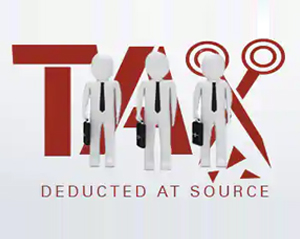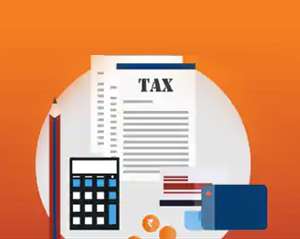The education industry in India is reportedly estimated to reach US$ 144 billion by 20201. The sector has constantly managed to push the importance of pursuing basic and higher education for economic development. Demographically India has the advantage of having one of the largest youth populations, coupled with widespread educational institutes and schools, and hence educational expenses naturally become one of the liabilities one has to account for.
With the growth of the Indian economy and rise in income levels, the spending on education has increased too, that accounts for the second-highest share of wallets for middle-class households in the country.
The spending for pursuing education can let you save on income taxes*. You can claim a deduction of Interest paid on a loan taken for pursuing higher education from taxable* income under Section 80E of the Income Tax Act, 1961*.
According to Section 80E*, the deduction is allowed on the total interest amount of the EMI paid during the financial year. The loan has to be taken from a bank or financial institution to pursue higher studies. One needs to obtain a certificate from the bank wherein the principal and interest amounts of the education loan paid during the financial year should be mentioned separately. It is because no deduction is allowed on the principal repayment amount.
Amount of deduction under Section 80E*:
The interest amount paid during the financial year is allowable as a deduction from taxable* income. There is no limit on the deduction amount. The benefit of the deduction is available for a maximum of 8 years or till the interest is paid, whichever is earlier. It is applicable even when you have taken an education loan for your spouse, children or for a student for whom you are the legal guardian.
It is advisable to wind up the higher education loan within the next 8 years to get the maximum benefit of Section 80E*. Parents can make use of this section to give their children the best of opportunities in higher education and secure their careers too. If they wish to send their children for foreign studies and take a loan for financing it, can also claim the deduction under Section 80E*. The deduction is applicable to all courses pursued after the senior secondary examination or equivalent and it should be from a school/institute/university recognised by the government.
Shivam is a regular salaried IT executive living in Mumbai with his family. His 19-year-old son, Aman is ready to pursue engineering from one of the reputed colleges in the country. Shivam took an education loan of ₹ 10 lakh to fund Aman’s college fees for 4 years. Aman is comfortably studying in his college with a secured career to look forward to. Shivam has taken the loan for a period of 6 years, and in this duration, he can claim a deduction of Interest paid on the loan taken for higher education under Section 80E*.
An education loan indirectly supports career-building by financing the crucial years of education. If you have taken an education loan and are in the process of repaying the same, then avail the Tax* benefit of Section 80E*. This way you can save some money while moving towards a successful career ahead. Education is getting costlier and for many, it is still a dream to continue studying after school, Tax* deduction sections like 80E* have been indirectly supporting many such dreams.
People like you also read ...






